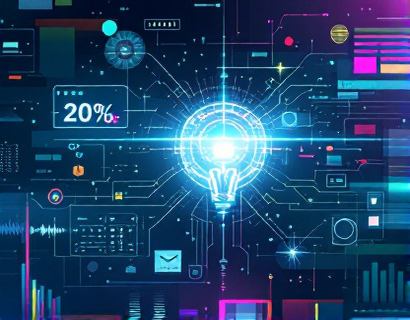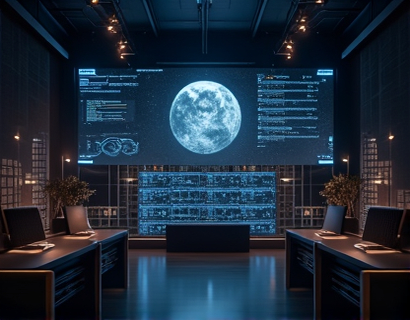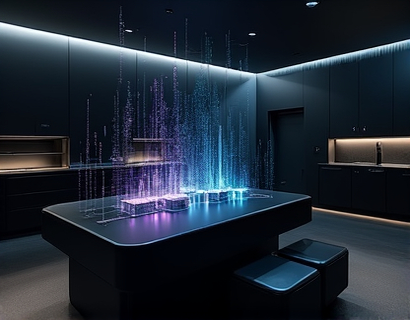Advanced Meditation Technology: Unlocking Relaxation and Mindfulness for a Balanced Life
In today's fast-paced world, finding moments of peace and tranquility can seem like an elusive goal. The constant demands of daily life, from work pressures to personal responsibilities, often leave individuals feeling overwhelmed and stressed. However, with the advent of advanced meditation technology, achieving relaxation and mindfulness has become more accessible than ever. This article delves into the transformative power of meditation software designed to guide users through profound relaxation sessions, soothing soundscapes, and mindfulness exercises, all aimed at promoting mental well-being and inner peace.
Meditation, a practice rooted in ancient traditions, has been scientifically proven to offer numerous benefits for both mental and physical health. Modern meditation technology has evolved to cater to the needs of contemporary individuals, providing user-friendly platforms that make it easier to integrate meditation into daily routines. These tools are not just for seasoned practitioners but are designed for anyone seeking to reduce stress, enhance focus, and cultivate a sense of calm.
Understanding the Basics of Meditation Technology
Meditation technology encompasses a range of digital tools and applications that facilitate the meditation practice. These platforms typically include guided meditations, timers, progress tracking, and a variety of mindfulness exercises. The software is engineered to create an immersive experience, often incorporating high-quality audio recordings, visual elements, and interactive features to engage users and deepen their practice.
Guided meditations are a cornerstone of meditation technology. These sessions are led by experienced instructors who walk users through the process, providing clear instructions and gentle encouragement. The guidance helps beginners feel more comfortable and confident, while advanced practitioners can benefit from deeper insights and techniques. The audio is often accompanied by soothing background music or natural soundscapes, which enhance the relaxation experience and help block out distractions.
Soothing Soundscapes and Their Benefits
Sound plays a crucial role in meditation, and meditation technology offers a wide array of soothing soundscapes to enhance the experience. These can range from gentle ocean waves and rustling leaves to soft piano melodies and ambient electronic sounds. Each soundscape is carefully curated to create a serene environment that promotes relaxation and mental clarity.
Research has shown that listening to calming sounds can lower heart rate, reduce blood pressure, and decrease levels of the stress hormone cortisol. These physiological changes contribute to a deeper state of relaxation, making it easier for individuals to enter a meditative state. Moreover, soundscapes can help mask background noise and create a sense of isolation, which is particularly beneficial for those meditating in noisy environments.
Mindfulness Exercises for Everyday Life
Mindfulness is the practice of being fully present and aware in the moment, without judgment. Meditation technology often includes a variety of mindfulness exercises designed to help users cultivate this awareness in their daily lives. These exercises can be as simple as focusing on the breath, observing thoughts and emotions, or engaging in mindful movement such as yoga or walking.
One of the key benefits of mindfulness is its ability to reduce stress and anxiety. By training the mind to stay present, individuals can break the cycle of worry about the future or rumination about the past. Mindfulness exercises also improve focus and concentration, leading to better performance in work and personal activities. Additionally, regular mindfulness practice can enhance emotional regulation, fostering a more positive and resilient mindset.
User-Friendly Platforms for Meditation
The beauty of modern meditation technology lies in its accessibility and ease of use. User-friendly platforms are designed to be intuitive, making it simple for anyone to start a meditation practice. These platforms typically feature a clean and uncluttered interface, allowing users to navigate easily and find the resources they need with minimal effort.
One of the key features of these platforms is the variety of meditation sessions available. Users can choose from short, quick sessions for busy schedules to longer, more immersive experiences for deeper relaxation. The sessions are often categorized by theme, such as stress relief, sleep improvement, or focus enhancement, allowing users to select the type of meditation that best suits their current needs.
Personalization and Progress Tracking
Advanced meditation technology often includes personalized features to tailor the meditation experience to individual preferences and goals. Users can set personal goals, such as reducing stress or improving sleep quality, and the platform can suggest sessions that align with these objectives. Progress tracking is another valuable feature, enabling users to monitor their advancement over time and stay motivated.
Many platforms also offer customizable settings, such as adjusting the duration of sessions, choosing preferred soundscapes, and selecting specific meditation techniques. This level of personalization ensures that each user's practice is unique and effective, catering to their specific needs and preferences.
Scientific Backing and Research
The effectiveness of meditation technology is supported by a growing body of scientific research. Studies have consistently shown that regular meditation practice can lead to significant improvements in mental health, including reduced symptoms of anxiety and depression, enhanced emotional well-being, and improved cognitive function. Neuroimaging studies have even demonstrated structural changes in the brain associated with meditation, such as increased gray matter in areas related to attention and emotional regulation.
Moreover, meditation has been found to have physical health benefits, including lower blood pressure, improved immune function, and better sleep quality. These findings underscore the value of incorporating meditation into daily routines, and technology makes it more accessible and convenient than ever.
Integrating Meditation into Daily Life
One of the most significant advantages of meditation technology is its ability to help users integrate meditation into their busy lives. With the demands of modern living, finding time for traditional meditation practices can be challenging. However, with the convenience of digital tools, users can practice meditation anywhere, anytime—whether at home, in the office, or during a commute.
Many platforms offer mobile apps, allowing users to access meditation sessions on-the-go. These apps often include features like reminders to meditate, progress tracking, and community support, which can help users stay consistent and engaged in their practice. By making meditation more accessible, technology helps break down barriers and encourages more people to experience its benefits.
Creating a Balanced and Tranquil State of Mind
The ultimate goal of meditation is to achieve a balanced and tranquil state of mind, free from the turmoil of daily stressors. Advanced meditation technology provides the tools and guidance necessary to reach this state, fostering a deeper connection with oneself and the world around us. By regularly engaging in meditation practices, individuals can develop a greater sense of inner peace, resilience, and overall well-being.
This balanced state of mind translates into various aspects of life, from improved relationships and increased productivity to enhanced creativity and emotional stability. Meditation technology not only aids in stress management but also promotes a holistic approach to health and wellness, encouraging users to live more fulfilling and meaningful lives.
Conclusion
In conclusion, advanced meditation technology offers a powerful and accessible way to unlock relaxation and mindfulness, leading to a more balanced and peaceful life. Through guided meditations, soothing soundscapes, and personalized mindfulness exercises, these platforms empower individuals to manage stress, enhance focus, and cultivate inner peace. As more people recognize the importance of mental and emotional well-being, meditation technology continues to play a vital role in supporting this journey.










































